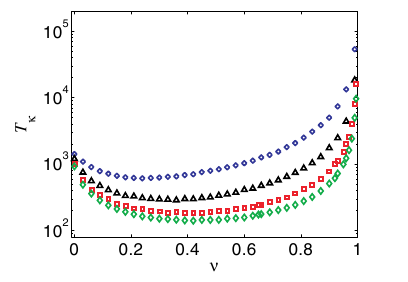Alternating cooperation strategies in a route choice game: Theory, experiments, and effects of a learning scenario
Hans Ulrich Stark, Dirk Helbing, Martin Schoenhof and Janusz A. Holyst
Games, Rationality, and Behaviour (2008)
Research: Reputation Trust Cooperation
Abstract
In this paper, we present experimental investigations on a day - to - day route choice scenario. Here, the equilibrium outcome is, according to real traffic observations, fair (equal for all users) but induces an inefficient usage of network capacity. Optimal usage would be characterized by some users winning and some losing in comparison to the equilibrium state. Coherent alternating cooperation strategies can be a suitable solution but they require innovation and group coordination in addition to cooperativeness. In these points, our work differs considerably from other contributions observing the emergence of cooperation in social dilemmas. By classifying the two - person variant of our experiments among the symmetrical 2x2 games we show the situation of the Route Choice Game not to not addressed by the literature so far. Although the equilibrium outcome in this setup is “strongly stable”, in our experiments we find eminent empirical evidence of alternating cooperation and, thereby, observed persistent utilization of the system optimum that is not profitable for all individuals. The transition to this optimal configuration can be well described by quantitative considerations that are presented in the paper. Furthermore, the straight success of a learning scenario indicates that the collective innovation of alternating strategies may be the most critical challenge to the individuals instead of just learning to be cooperative. Presumably, this also holds for other social dilemma situations.

